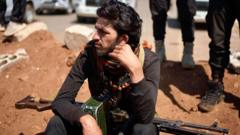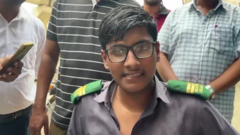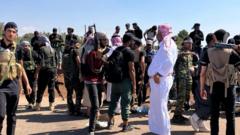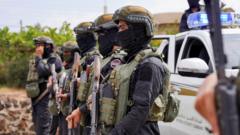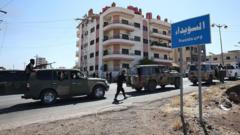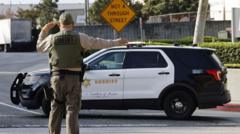"In a painstaking effort to identify victims from the civil war, Dr. Anas al-Hourani leads the Syrian Identification Centre's work with remains from mass graves. As families like Malak Aoude search for lost loved ones, the struggle for justice in Syria continues amidst challenges in forensic analysis and trauma."
"Unearthing the Past: The Long Road to Identifying Syria's Mass Graves"

"Unearthing the Past: The Long Road to Identifying Syria's Mass Graves"
"Medics and families face a daunting journey of recovery as they uncover the grim realities of Syria's civil war through mass grave analyses."
The Syrian civil war, raging for over 13 years, has left a catastrophic toll, with countless lives lost and families shattered. At the forefront of uncovering these grim realities is Dr. Anas al-Hourani, the head of the newly-established Syrian Identification Centre. Standing amidst a collection of femurs laid out in neat rows, Dr. al-Hourani begins his complex work of identifying individuals from what he calls "mixed mass graves," where bodies have been carelessly piled, often indicating recent victims of violence.
With an estimated hundreds of thousands killed under the regimes of Ba'athist leaders Bashar al-Assad and his father Hafez, the grim recognition of the deceased is an emotional and intricate process. Although DNA analysis remains the gold standard for identification, only one lab is operational in Syria and limited by international sanctions that restrict essential resources. The stark reality is that the lab can perform only a small number of identifications at a time, resulting in a daunting time frame that could stretch into years.
Adding a somber perspective to these graves is Abu Ali, a former military driver who transported cadavers for years under Assad's regime. He recounts horrific memories of delivering innocent civilians, their bodies "mangled and tortured". This vivid testimony reveals the systematic brutality allowed by the regime, where bodies were treated as mere cargo.
Among those left in anguish is Malak Aoude, whose two sons were captured during the war. Her long journey of searching for them, which included confronting evidence of their potential detainment and disappearance, showcases the poignant stories tied to the mass graves.
The struggle for transitional justice remains critical for many Syrians seeking delayed accountability and closure. Though the new government of Islamist rebels has pledged efforts towards this end, families like Malak’s remain disappointed and desperate for answers regarding their lost kin.
The road to restoring dignity to the victims of Syria’s dark past is riddled with challenges—from forensic capabilities to the emotional toll on the bereaved—and it’s a task that will span many years, affecting countless lives in the process.






